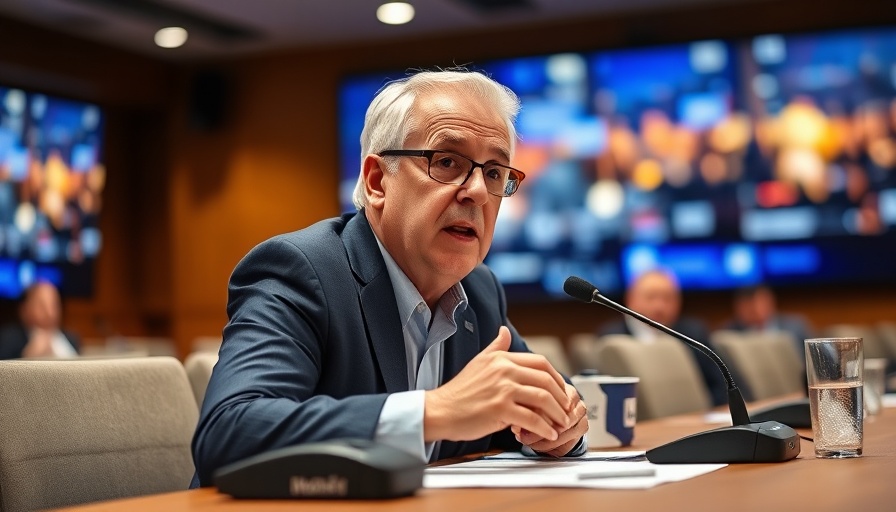
The Intensifying Pressure on the Ramaphosa Government
As South Africa grapples with internal tensions, the recent insistence from AfriForum and Solidarity for a "sustained pressure" campaign against President Cyril Ramaphosa's government signals the escalating stakes in the political landscape. Following directives from former President Donald Trump, who has controversially offered refuge to white Afrikaners, these civil rights organizations have traveled to Washington to advocate for their community's position against a government they characterize as unyieldingly arrogant.
Tracing the Roots of Tension
The claims presented by AfriForum and Solidarity revolve predominantly around accusations of farm murders and governmental negligence toward the Afrikaner community. Their memorandum to the Trump administration stipulated that farm-related violence, which they argue is endemic, disproportionately threatens Afrikaners. Critics, however, dispute the validity of these assertions, highlighting that recent crime statistics provided by South African authorities indicate that only 12 out of 6,953 murders were classified as farm murders, a minuscule figure in the grand scheme of national violence.
Understanding the Broader Context
Though the historically entrenched narrative of Afrikaner persecution carries weight within certain circles, the majority of South Africans, including members of the Afrikaner community, do not feel an imminent threat looming over their rights or safety. Scholarly analyses suggest that while discussions around land reform have sparked fears, particularly regarding the Expropriation Act and its implications, the reality is nuanced. Data reveal that 73% of South Africa's privately owned land is still in white hands, despite the population being predominantly non-white, illustrating systemic issues that transcend racial lines.
The Role of External Influences
Trump's intervention by way of executive orders toward South Africa stirs a hornet's nest of political and racial complexities that reverberate beyond its borders. His framing appears to cater to specific political narratives built by groups like AfriForum, which thrive on the association of economic decline and racial identity. Still, many young Afrikaners express skepticism regarding their community's purported persecution. Comments from university students echo a belief that ongoing societal issues like crime are multifaceted and not solely directed at any one group, signaling a generational shift in perspective. This marks an intriguing juxtaposition against the backdrop of increasingly strained US-South Africa relations, which have become particularly fraught due to Trump’s outspoken criticism of South Africa.
Political Dynamics and Future Predictions
The upcoming 2024 general elections and 2026 municipal elections will serve as crucial battlegrounds, as they reflect the evolving political machinations accentuated by coalitions including the ANC, DA, and EFF. With the backdrop of an emerging governmental landscape seeking reform amid charges of state capture and service delivery failures, how the Ramaphosa administration responds to both internal and external pressures remains to be seen. The ramifications of these decisions will not only shape the immediate future of political parties but could redefine the social contract within South Africa as a whole.
Urgent Action and Accountability Measures
As these dialogues unfold, the call for transparency and accountability persists, underscoring the importance of investigating allegations of discrimination, and enhancing public sector reform, and judicial independence. The appeals from AfriForum and Solidarity concentrate on restructuring agricultural policies and potential amendments to the Expropriation Act, thereby raising pertinent questions about the long-term sustainability of agricultural communities across racial compositions. Engaging in this discourse critically positions the nation for reflection on how legacy issues of apartheid continue to inflect current governance strategies.
Conclusion and the Value of Engagement
In this context of turbulence and potential reconciliation, it is imperative for all South Africans to advocate for open dialogue and transparency in governance to foster socio-political cohesiveness. The complexity of these issues calls for a concerted effort from civil society, political factions, and the international community to seek resolutions that respect human rights and address historical injustices. As we witness unfolding effects of these national conversations, clarity and consensus can provide paths forward that unify rather than divide.
 Add Row
Add Row  Add
Add 


Write A Comment